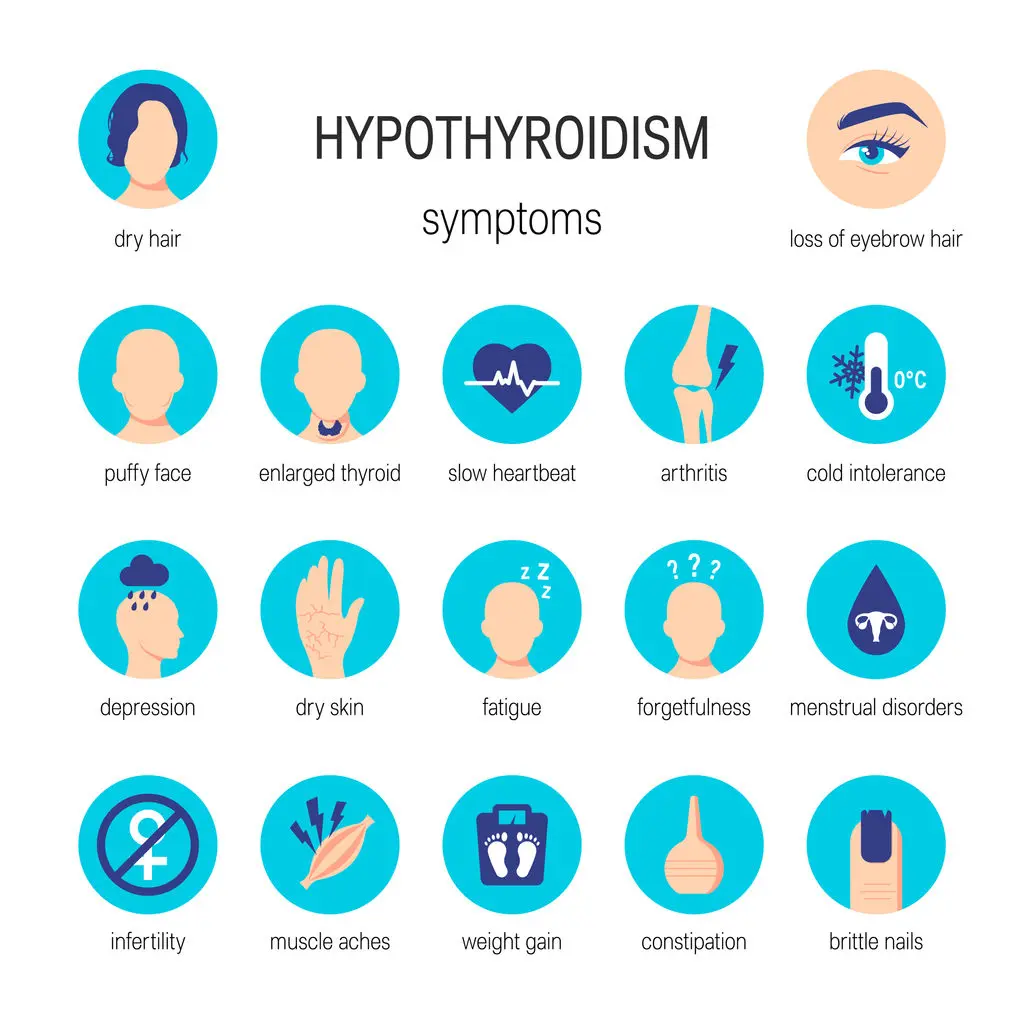Understanding your thyroid health is essential for overall well-being. The thyroid, a small butterfly-shaped gland in the neck, plays a crucial role in regulating various bodily functions through hormone production. Many people experience symptoms related to thyroid dysfunction without realizing it. In this blog, we’ll explore the common symptoms of thyroid issues and effective solutions to manage your thyroid health.
What is the Thyroid and Its Role in Your Body?
The thyroid gland is a crucial part of the endocrine system, responsible for producing hormones that regulate metabolism, energy levels, and overall bodily functions. In this section, we’ll delve into how the thyroid operates and why it’s important for optimal health.
To put it simply, the thyroid acts like the body’s thermostat. It ensures your metabolism is running smoothly and keeps other systems in check. When functioning properly, it provides the energy you need to go about your day. However, when something goes awry, you may experience symptoms that are tricky to pinpoint.
The main hormones produced by the thyroid, T3 and T4, circulate through the bloodstream and deliver necessary instructions to various organs and tissues. This connection highlights why even a minor dysfunction can lead to significant effects throughout the body. In essence, your thyroid health can dictate your overall vitality!
Recognizing the Symptoms of Thyroid Dysfunction
Symptoms related to thyroid problems can vary widely, from fatigue and weight gain to anxiety and hair loss. Here, we’ll highlight the most common signs to look out for, helping you determine if your thyroid might be affecting your daily life.
It’s alarming how often we overlook signs that something might be off with our thyroid. For instance, persistent fatigue that doesn’t improve with rest could be more than just a busy schedule; it might signify hypothyroidism. Additionally, unexpected weight gain or difficulty losing pounds despite rigorous dieting may also raise a red flag regarding your thyroid health.
Beyond physical symptoms, emotional well-being can also take a hit. Some individuals might feel increased anxiety, mood swings, or even depression indicating thyroid issues. If you’re experiencing these symptoms together, it’s essential to consider how they might connect. Paying attention to these signs can lead you to the answers you’ve been seeking.
Understanding Common Thyroid Disorders
Two of the most common thyroid disorders are hypothyroidism and hyperthyroidism. This section will clarify what each of these conditions entails, their causes, and how they differ from one another.
Hypothyroidism occurs when the thyroid doesn’t produce enough hormones, essentially slowing down your body’s processes. Common causes include autoimmune diseases, iodine deficiency, and certain medications. In contrast, hyperthyroidism is characterized by an overproduction of thyroid hormones, often resulting in a racing heart, weight loss, and nervousness.
Both conditions may seem contradictory, but they share the common thread of disrupting balance within the body. Hence, understanding these disorders is paramount, as proper diagnosis can set the stage for effective treatment and lifestyle adjustments. It’s like tuning a musical instrument; even slight misalignments can lead to off-key results.
Diagnostic Tests and What They Mean for You
If you suspect thyroid issues, your doctor may recommend tests such as TSH, T3, and T4 levels. We’ll break down these tests, explain what the results can indicate, and why they are crucial for diagnosis.
The thyroid-stimulating hormone (TSH) test is typically the first step in evaluating thyroid function. Elevated TSH levels often suggest hypothyroidism, whereas low levels could indicate hyperthyroidism. Understanding these levels can also guide necessary treatment interventions.
In addition, measuring T3 and T4 provides a deeper insight into how well the thyroid is functioning. These tests distill a wealth of information into concrete data, allowing both patients and doctors to formulate a clearer picture. It’s like piecing together a puzzle; every test adds a crucial piece that helps reveal the complete image of your thyroid health.
Natural Solutions and Lifestyle Changes for Thyroid Health
Managing thyroid health can often begin with lifestyle changes. In this section, we’ll share tips on diet, exercise, and stress management that can help support optimal thyroid function and address symptoms.
A balanced diet rich in iodine, selenium, and zinc can have a profound impact on your thyroid function. Foods such as fish, nuts, dairy, and whole grains provide essential nutrients that your thyroid craves. Similarly, regular exercise not only boosts mood and metabolism but can also enhance overall thyroid health.
Stress management is another vital factor. High stress levels can contribute to thyroid dysfunction, creating a vicious cycle. Techniques such as yoga, meditation, or even simple breathing exercises can make a world of difference. Engaging in activities that ground you can ease stress and, consequently, support your thyroid’s overall function.
Medical Treatments: What Are Your Options?
When lifestyle adjustments aren’t enough, medical treatment may be necessary. This section will overview the common pharmaceutical options available for managing thyroid conditions and how they work.
For hypothyroidism, synthetic hormone replacement therapies, like levothyroxine, can help restore normal levels. These medications work by supplying the body with the same hormones the thyroid would typically produce. Monitoring your dosage with a healthcare provider is crucial in maintaining hormonal balance.
On the flip side, individuals diagnosed with hyperthyroidism may have different treatment protocols, such as antithyroid medications or even radioactive iodine therapy. These treatments aim to reduce hormone production and alleviate the associated symptoms. Discussing options with a knowledgeable healthcare professional can guide you to the most appropriate treatment plan for your needs.
Consulting with Healthcare Professionals
Navigating thyroid health can sometimes be complex, and having the right medical team is critical. Here, we’ll discuss what to look for in a healthcare provider and what questions to ask during your visits.
Finding a healthcare professional who understands the nuances of thyroid health is essential. Look for practitioners who specialize in endocrine disorders, as their insights will reflect in your personalized care plan. Don’t hesitate to ask about their experience with thyroid conditions during your initial consultation.
Moreover, come prepared with questions. Ask about potential side effects of treatments, the recommended tests, and what lifestyle changes you might also consider. By being proactive and engaged, you can foster a partnership that emphasizes your unique needs and goals in managing thyroid health.
Empowering Your Thyroid Health Journey
Taking proactive steps to understand and manage your thyroid health can significantly improve your quality of life. Remember, if you experience any concerning symptoms, consult with a healthcare professional for personalized advice and treatment options. By educating yourself and seeking help, you can empower yourself to live a healthier life.













